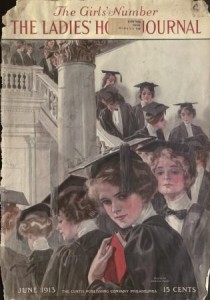 2013 HISTORY OF EDUCATION SOCIETY ANNUAL MEETING
2013 HISTORY OF EDUCATION SOCIETY ANNUAL MEETING
NASHVILLE, TENNESSEE October 31- November 3, 2013
CALL FOR PAPERS
The Program Committee invites proposals on all topics relevant to the
history of education in any time period or nation, and especially papers or
panels that cross cultures, time periods or national boundaries. The
Committee defines “education” broadly, to include all institutions of
socialization—mass media, voluntary organizations, and so on—as well as
schools and universities. Proposals may be submitted for an individual
paper, a complete paper session, or a panel discussion. A proposal for an
individual paper spells out the paper’s focus and rationale; if accepted,
this paper and others related to it will be combined into a paper session.
A proposal for a complete paper session provides a prospectus for a
coherent collection of three or four papers, including a title for the
session, a title for each paper, names of all authors, a chair, and a
discussant. A panel discussion is a session in which a group of qualified
panelists present a series of thought pieces that discuss important issues,
research or books in the field.
For the 2013 meeting, the Program Committee asks members to consider
proposing sessions, which may take the format of panel discussions or
workshops, organized around themes including:
1. Teaching of the History of Education (including higher education,
the use of primary sources, teaching in a multiracial democracy, and
technology) and the place of the Foundations of Education in university
programs
2. Historians as Public Intellectuals—The place of History in policy,
politics, and public opinion
3. The state of the field—emerging issues or issues that should be
emerging in HES
Note: There will be no preference given to papers and panels that fit, or
do not fit, these themes, but we will avoid scheduling conflicts among
panels that fall under any one theme.
Please include affiliations and email addresses for all participants.
Proposals are due on or before March 1, 2013 (no later than 9:00 p.m., PT).
Your proposal should either be no more than a two-page proposal,
single-spaced, describing an individual paper (references may be in
addition to the two pages), or no more than a four-page proposal
single-spaced, describing a complete paper session or panel discussion
(again, references may be in addition to the four pages). The proposal
should include the following elements: the topic, the theme, and an
overview of the study or discussion; the findings or conclusions; the
significance and how the work relates to other scholarship in the field;
and the sources. Whole panel proposals should also include individual paper
titles and a brief abstract in addition to the proposal for the panel as a
whole. Please eliminate any identifying information from your proposal
before uploading it but include the affiliations and email addresses for
all participants elsewhere as instructed on the website.
To submit a proposal, please go to our proposal submission website. It is
the same website used for the 2011 and 2012 Annual Meeting (with a change
of year in the address): https://cmt.research.microsoft.com/HES2013.
You will be asked to log into, or create, an account. (Note: It is
essential to use https. Using simply http will not get you access.) The
simple prompts will then guide you in entering your proposal information,
uploading your proposal, and providing some additional information,
including an abstract of your paper or session.
The History of Education Society requires all presenters at the 2013
conference to be members of the society. Invitations for membership will be
sent to authors of accepted proposals along with details about the
conference.
For questions about proposals, please contact James Fraser, program chair,
email jwf3@nyu.edu; telephone 212-998-5413, or mail New York University,
Steinhardt School of Culture, Education, and Human Development, East
Building, Suite 600, 239 Greene Street, New York, NY 10003.
For questions about technical issues related to submitting proposals,
please contact Noah Kippley-Ogman, email nko207@nyu.edu.
For questions about payments and registration, please contact Ralph Kidder,
email rkidder@marymount.edu.
 ——————————————————————-
——————————————————————-

